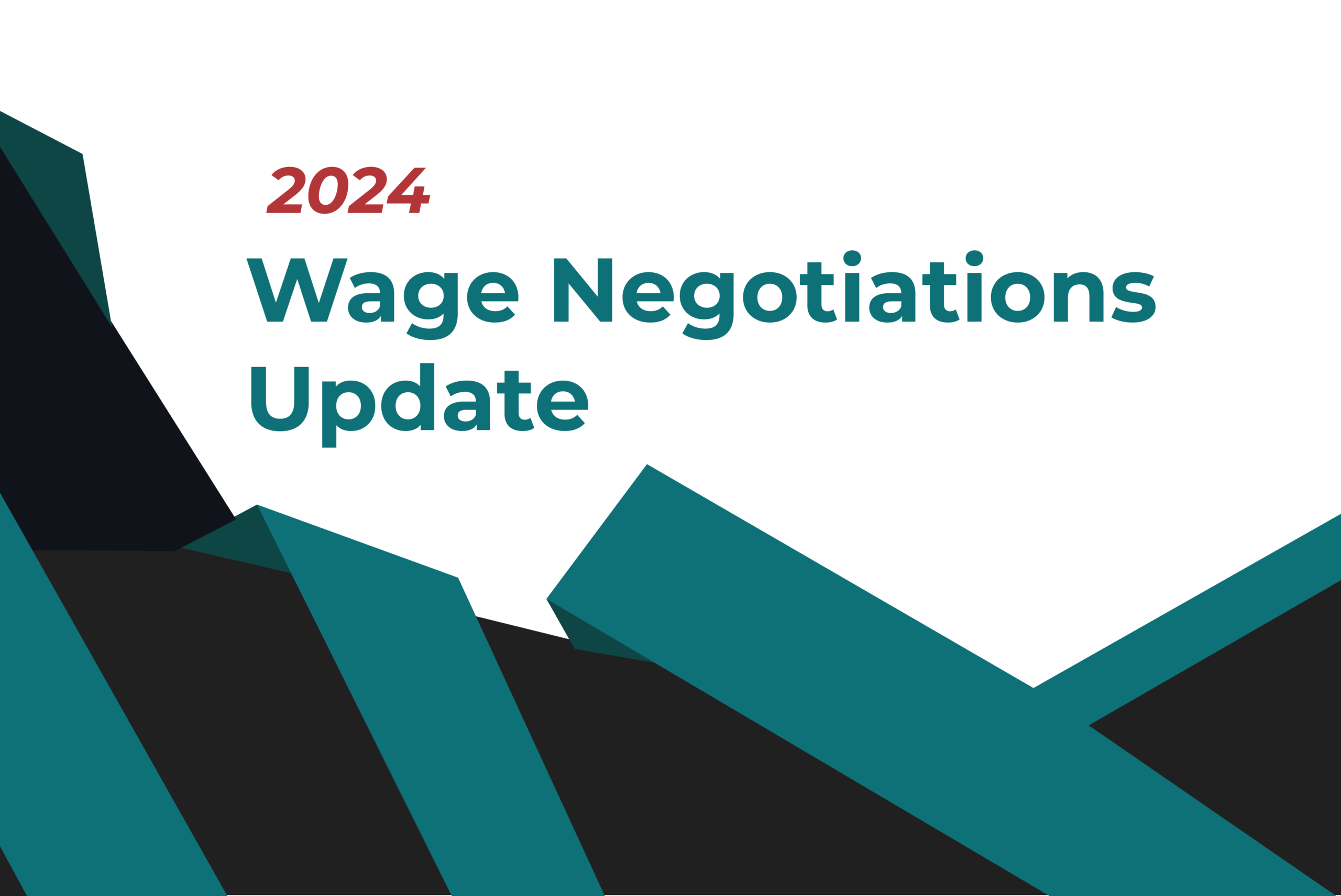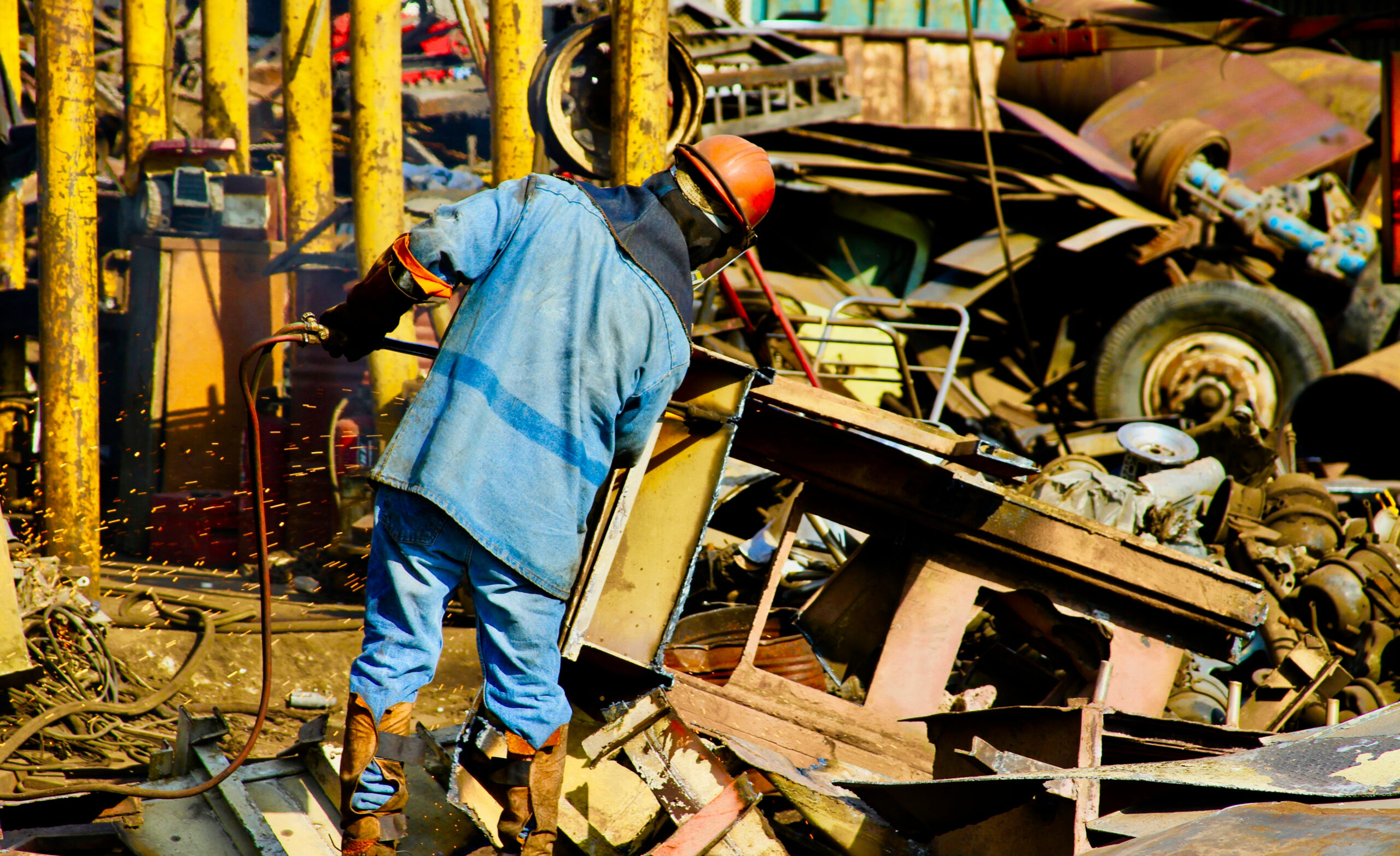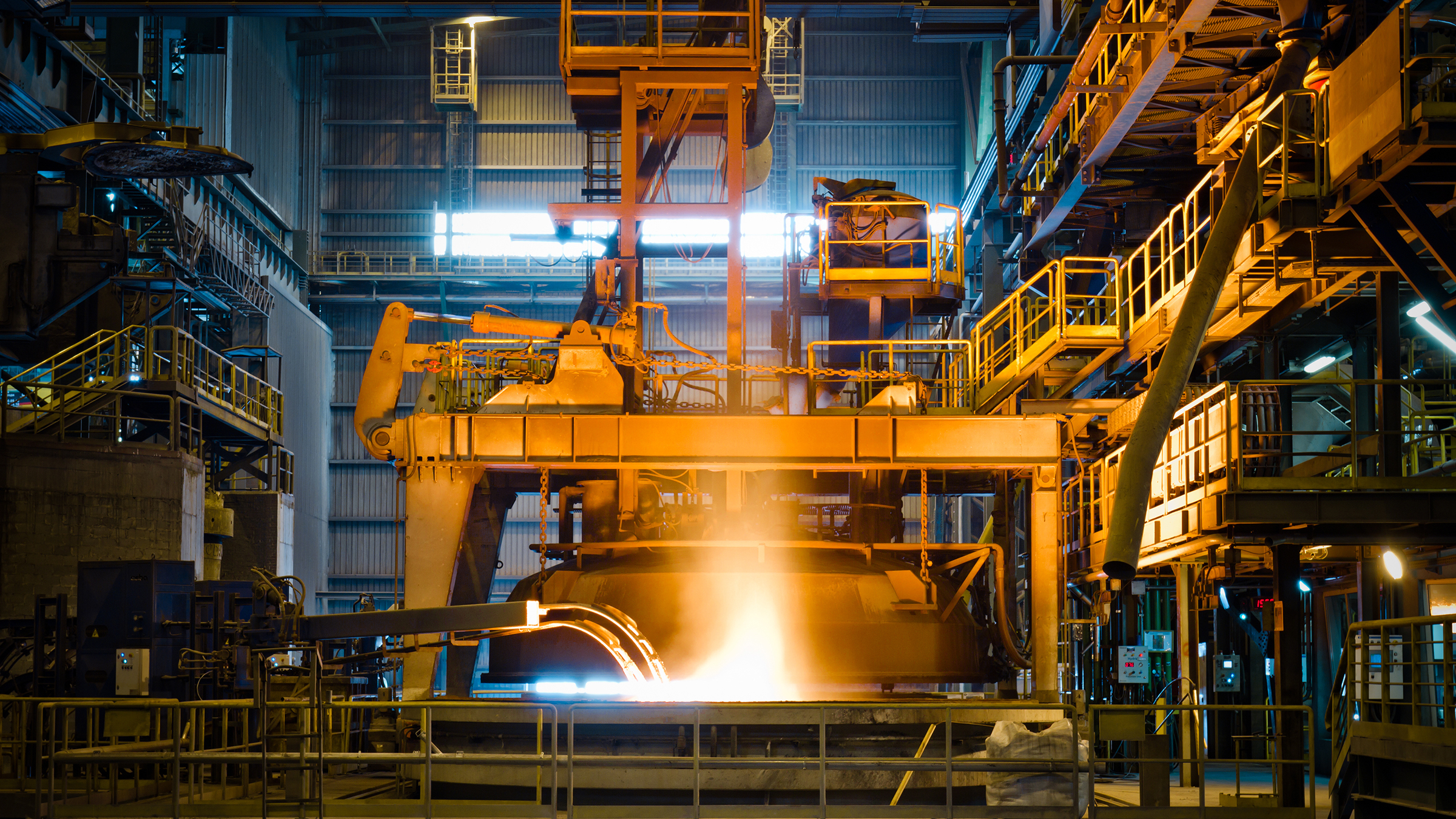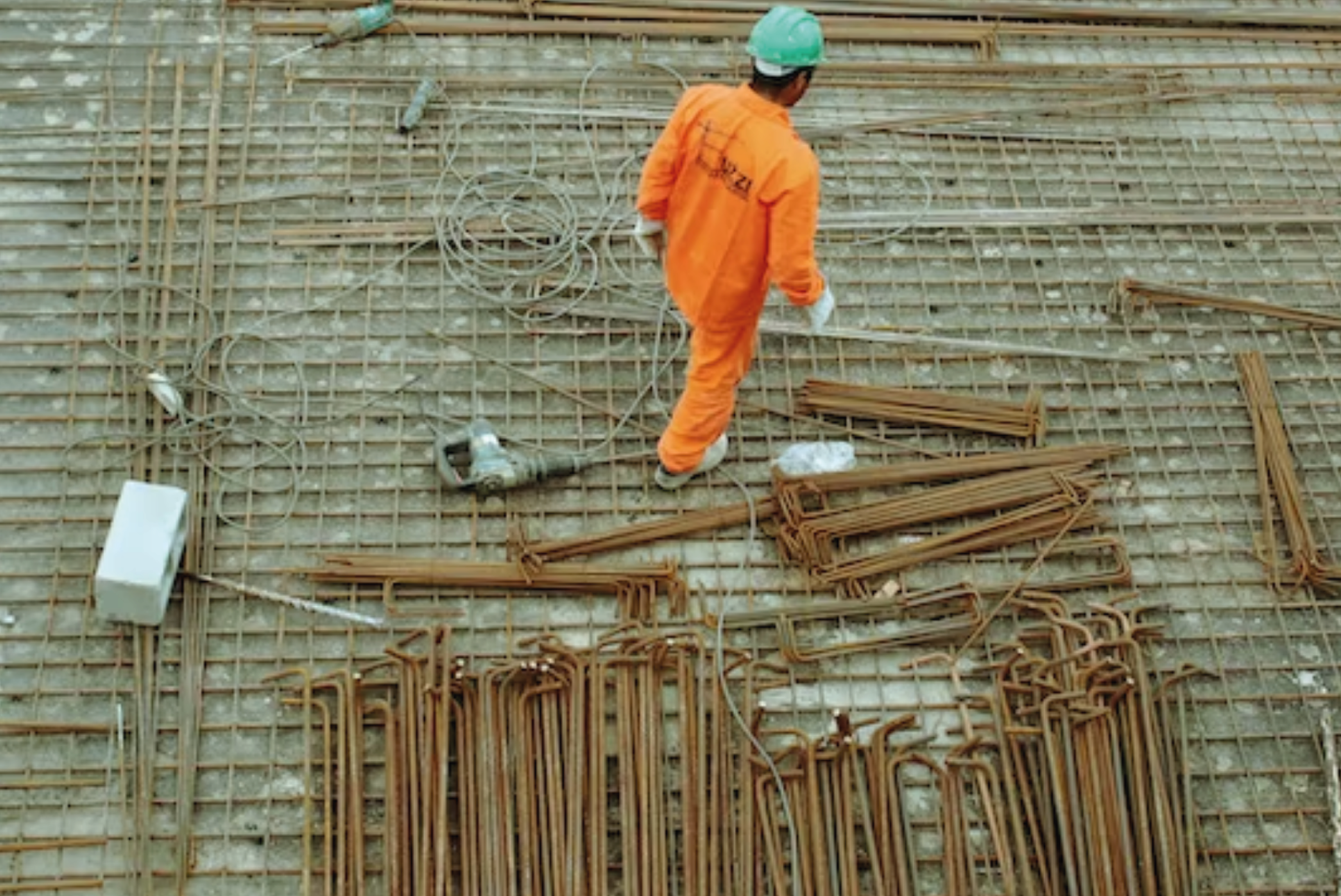SEIFSA and NUMSA conclude Historic Agreement in record time
After three formal engagements SEIFSA and NUMSA have concluded the terms of a historic three-year wage agreement for the period 1 July 2024 to 30 June 2027.
Following a bruising round of wage negotiations in 2021 which peaked in a three-week strike costing the industry in excess of R600 million rand per day in lost revenue, this year’s agreement was reached in record time, with no industry disruption and within mandate.
The SEIFSA affiliated membership which accounts for 57% of all employees, employed by all the employer organizations on the bargaining council and NUMSA representing in excess of 115 000 members signed the agreement today at the Birchwood Conference Centre in Boksburg.
“This agreement is a testament to the commitment by the social partners to seek a settlement as soon as possible and with minimal disruption,” said Mr. Trentini.
The agreement was reached on the foundation laid by the signing of a process agreement by all the parties prior to the commencement of the negotiations – this strategic innovative approach was also in itself an unprecedented event.
‘’The process agreement set the road-map to settlement, a pledge to negotiate in good faith, outlined the context, tone and architecture of the negotiations,” said Mr. Trentini.
This year’s agreement, as was the case in 2021, prescribes wage increases to be calculated on the scheduled or gazetted minimum rates of pay per grade over the next three years. Rate A in year 1 will receive 6%; Rate H 7% and in years two and three of the agreement, Rate A will receive 5% and Rate H 6% respectively.
Apart from wage increases and this year’s agreement being reached almost two months before the expiry of the current agreement – again an unprecedented feat (in 2021 agreement was reached in October), the deal contains no additional and/or immediate cost to employment concessions. Importantly however, the exemption and special phase-in exemption dispensation for employers who feel that a degree of relief from the agreement is required is retained. This is in direct response and a clear acknowledgement by the parties to also cater for SMME’s, their challenges, dynamics and sustainability.
“Of historical importance is the commitment by the parties to meaningfully address access to housing for industry workers,” Mr. Trentini said.
The parties have agreed to request the Board of Trustees of the Metals and Engineering Industries Benefit Funds, who oversee investments under management in excess of R149 billion, to develop an institutional framework, covering amongst other, eligibility and legal criteria, funding model/s, subsidy mechanisms and/or programmes and substantive policy approaches within three (3) months of the signing this agreement.
In addition, “stakeholders have agreed to convene and jointly formulate an industrial policy framework focused on re-building and repairing public infrastructure, alleviating bottlenecks constraining economic growth while ensuring the long-term sustainability of the metals and engineering sector,” said Mr. Trentini.
Finally, a number of outstanding issues have been identified and referred to various working groups and committees for further investigation, discussion and processing.
“SEIFSA applauds the trade unions for staying the course and living the bold, courage’s and ambitious goals and objectives embodied in the process agreement,” said Mr. Trentini.
“Three decades into our democracy it is heartening to witness that it is indeed possible for negotiating partners, in the heat of robust and adversarial collective bargaining to put the interests of the metals and engineering sector – and, indeed, the interests of our country – first,” Mr. Trentini said.
Expect More from this round of negotiations
Incendiary rhetoric related to main agreement negotiations has been a recurrent issue post 2010 and as this year’s negotiations approach, expect more of it.
In an economy hit by double-digit contraction, battered by an unprecedented and alarming jobless rate and languishing in sub-optimal economic growth, what should the key stakeholders - organized business and labour – be doing to lift SA and this sector out of this mess? Are stakeholders capable of reaching common cause in order to turn things around or as we have come to expect, will employers and labour simply not be able to find one another where it matters most – at the negotiating table. Who would have imagined almost three decades into our democracy we still need to resort to strikes and lock-outs to resolve our differences? Collective bargaining in its crudest form is almost always about power and ideology and stubborn leaders convinced that they are right.
Our disillusionment with the system, the country and the future is a normal response and should be acknowledged. But once that’s done it does not help to dwell on the negatives. This should not be taken as naive optimism, just a realistic acceptance that things are indeed tough at the moment, but we will get through. Never waste a good crisis, they say. This industry has certainly been, and is still in the midst of a number of crises. Surely, opportunity must abound? Indeed, but in the collective barraging space, where business and labour are on opposite sides as adversaries, who has the courage to take the first step towards the middle? In any negotiation, presuming both parties are equally skilled, common interest plays a role in shaping the deal. Where common purpose cannot be found because of a perceived lack of mutual respect the deal will almost inevitably unravel.
In the metals and engineering industries the collective bargaining model has proven to be remarkably resilient. Undoubtedly it has come under sever scrutiny and strain over the last couple of years but it has survived and some would even suggest thrived. Resilience grows from taking constructive steps and building a common purpose. Without common purpose, crafting solutions to entrenched differences will remain elusive. It’s time for all role players to stand up and be counted. Notwithstanding our diverse ideologies as between business and labour and amongst business groupings, finding a way forward in tolerance and mutual respect is now, more than ever, desperately needed.
Insofar as this year’s round of negotiations is concerned, we know things will not be easy and the challenges facing us are many. South Africa’s economic outlook doesn’t look good and there is little business confidence. The notion of job retention and/ or job creation on the back of an alarming high unemployment rate fuelled by ongoing retrenchments and business closures, has become elusive.
Persistent load-shedding, the worst in more than a decade, shows no signs of ending. Spiking unemployment, widespread business failures and huge job losses point to negotiations this year taking place against a difficult economic landscape. It would be fair to say that only if labour and business find a way of working together do we stand a chance of turning things around. It’s also fair to say that the relationship between supporters and detractors of gazetted agreements remain strained. Litigation continuous and in all likelihood may well continue into the future.
Trust amongst all stakeholders must be rebuilt and the national discourse must find a way of transcending beyond purely wages and terms and conditions of employment. Once negotiations over wages and conditions of employment have been settled, the focus must urgently shift to more important priority interventions, where labour and business collectively can play a part in tackling the deep underlying failures preventing meaningful growth in SA and our sector.
- a long-term agreement;
- wages;
- gazettal and extension; and
- exemptions incorporating special phase-in dispensation.
Initiating Negotiatons for the Amendment of an existing Agreement in terms of Clause 10 and Annexure E of the MEIBC Constitution
25 March 2024
Mr. Sicelo Nduna
General Secretary
MEIBC
Facsimile: 086 636 8690
Email: sicelon@meibc.co.za
Dear Mr Nduna
INITIATING NEGOTIATONS FOR THE AMENDMENT OF AN EXISTING AGREEMENT IN TERMS OF CLAUSE 10 AND ANNEXURE E OF THE MEIBC CONSTITUTION: CONSOLIDATED MAIN AGREEMENT
SEIFSA, acting in accordance with the mandate of the member Associations contained in the attached schedule, request you, in accordance with Clause 10 and Annexure E (2) of the MEIBC Constitution to convene a negotiating meeting at your earliest convenience.
Insofar as this year’s round of negotiations is concerned, we know that things will not be easy and the challenges facing us are many. South Africa’s economic outlook doesn’t look good and there is little business confidence. The notion of job retention and/ or job creation on the back of an alarming high unemployment rate fuelled by ongoing retrenchments and business closures, has become elusive.
Persistent load-shedding, the worst in more than a decade, shows no signs of ending. Spiking unemployment, widespread business failures and huge job losses point to negotiations this year taking place against a difficult economic landscape.
It would be fair to say that only if labour and business across the board find a way of working together do we stand a chance of turning things around. It’s also fair to say that the relationship between supporters and detractors of gazetted collective agreements, like the Main Agreement, are strained. Litigation continuous and in all likelihood may well continue into the future.
Trust amongst all stakeholders must be rebuilt and the national discourse must find a way of transcending beyond purely wages and terms and conditions of employment.
Once negotiations over wages and conditions of employment have been settled, the focus must urgently shift to more important priority interventions, where labour and business collectively can play a part in tackling the deep underlying failures preventing meaningful growth in SA and our sector.
In light of the above the Associations federated to SEIFSA propose concluding an agreement which envisages affording industry an opportunity to re-set in an enabling environment underpinned by certainty, stability and industrial peace.
Industry negotiations over the years have created a set of comprehensive and favourable employment conditions for employees that are essentially unmatched across most bargaining councils. Hence, we do not wish to pursue any further amendments and/ or adjustments to benefits currently contained in the Main Agreement nor do we propose down varying existing terms and condition of employment. Equally important is our position on Section 37 of the Main Agreement i.e., that it must be retained.
Accordingly, we formally give notice that our approach to this year’s round of negotiations will be structured around four (4) broad principles or themes, namely:
- a long-term agreement;
- wages;
- gazettal and extension; and
- exemptions incorporating special phase-in dispensation.
As there is a nexus or connectivity between these four themes or business drivers, consensus must be reached on each of the drivers before an agreement can be considered.
We also propose that all outstanding issues be dealt with in-line with the provision as set-out in paragraph 6 of the signed-off Process Agreement and that this process commence immediately once a Settlement Agreement has been concluded.
In closing, it is our hope that the employer and trade union parties in the MEIBC will make every effort to successfully conclude the industry negotiations on or before the expiry of the current agreement on 30 June 2024.
We ask that you please bring the views of our member Associations, as articulated herein, to the attention of the party trade unions and the other employer organizations on the Council.
Yours Sincerely
Lucio Trentini
Chief Executive Officer
Cc: Elias Monage, SEIFSA President
Association Chairpersons
NEASA, CEO, SAEFA, (SA) UEO, FEOSA – by email
NUMSA; NUM, Solidarity; UASA – The Union; MEWUSA and SAEWA - by email
________________________________________________________________________________________
The List of Registered Employer Organizations’ Federated to SEIFSA and Party to the MEIBC
Association of Electrical Cable Manufacturers of South Africa
Cape Engineers’ and Founders’ Association
Constructional Engineering Association (South Africa)
Electrical Engineering and Allied Industries’ Association
Electrical Manufacturers’ Association of South Africa
Gate and Fence Association
Hand Tool Manufacturers’ Association
Kwa-Zulu Natal Engineering Industries’ Association
Iron and Steel Producers’ Association of South Africa
Lift Engineering Association of South Africa
Light Engineering Industries’ Association of South Africa
Non-Ferrous Metal Industries’ Association of South Africa
Eastern Cape Engineering and Allied Industries Association
Refrigeration and Air Conditioning Manufacturers’ and Suppliers’ Association
S.A. Electro-Plating Industries’ Association
S.A. Refrigeration and Air Conditioning Contractors’ Association
S.A. Pump Manufacturers’ Association
S.A. Valve and Actuator Manufacturers’ Association
Industry Wage Negotiations Kick-off
INDUSTRY WAGE NEGOTIATIONS KICK-OFF
Negotiations this year will take place against a very difficult economic background. The sector is still in the throes of deep distress. A fragile economy, spiking unemployment, widespread business failures and huge job losses will no doubt test our mettle.
On a positive note, talks-about-talks are already well underway and to date all the parties have signed-off on a process or relationship agreement and a declaration to negotiate in good faith. A pre-bargaining conference was held on 7 February and a negotiating timetable has been agreed. Whilst all this on the surface may not seem to amount to much, it is all unprecedented and hopefully a sign that the difficulties we find ourselves in are shared by our union counterparts.
In terms of the timetable the following has been agreed:
| Month | Process | Comments |
| 7th February | Pre-Bargaining Conference | Understanding Industry Issues and Challenges |
| 25th March
|
Submission and Exchanging of Demands and Triggering
Annexure E of the Council Constitution |
Finalize respective parties demands, exchange of demands and triggering
Annexure E |
| 10th April | Commencement
of Negotiations |
Commencement of negotiations |
| 24th April | Negotiations | Negotiations |
| 8th May | Negotiations | Sign-off |
You will observe we have set a tight time-line with the aim of settling early, within mandate and with minimal disruption. We understand how difficult this will be but this time round, parties are faced with a set of daunting circumstances that simply cannot be ignored. Manufacturing performance is anything but encouraging, persistently high interest rates, electricity outages, failing logistics and weak demand have all lead to a sector that is under siege.
Mandating, tactics and strategy will play a key role in delivering a sound agreement. We ask that member companies play their part in supporting their respective Associations who play an important role in formulating a consolidated mandate that allows the Main Agreement Negotiating Team to develop the tactics and strategy.
At the outset I extend a note of immense gratitude to all members of the 2024 Main Agreement Negotiating Team who during the process, will sacrifice an inordinate amount of time, effort and energy – over and above their day-to-day jobs – supporting the Office and me in ensuring that we meet the goals we have set.
This will be a difficult round but, in the end, we will succeed if we just stay the course.
Lucio Trentini
Chief Executive
SEIFSA position on Scrap Metal Regulations
Johannesburg, 5 FEBRUARY 2024. In anticipation of the Minister of Trade, Industry and Competition, Minister Patel’s, decision on the way forward regarding the scrap metal regulations and following the extended public comment period which closed on the 12th of January 2024, SEIFSA encourages the Minister not to take a narrow and short-term view on the matter, but rather consider the broader consequences of the decision and what is best for the industry in the long-term.
With the benefit of hind-sight the undeniable facts that should be factored into the Minister’s decision making are that the scrap metal export ban was not at all effective in combating infrastructure damage and theft of scrap metal. The imposition of the export ban has caused more economic harm than good. This is evidenced, inter alia, by the policy being one of the contributing factors to the announcement by ArcelorMittal South Africa (AMSA) on the possible closure of its long-products business. The export ban also communicated a very poor economic signal where blunt industrial policy instruments are deployed to combat crime, which resulted in a myriad of unintended consequences.
The lapsing of the scrap metal export ban on the 15th of December 2023 and the extension of the public consultation period to the 12th of January 2024, has brought to the fore the fact that alternatives to an export ban are a very real possibility.
The first of which is the development of an industry pledge, co-created by the DTIC and industry to work together to combat the movement of illegitimate scrap metal. This will be done by, inter alia, the phasing out of the use of cash in scrap metal transactions, rigorously inspecting the origins of scrap metal and an industry zero-tolerance approach to purchases of scrap metal from unidentified sources or where the product may reasonably be suspected to be from stolen public infrastructure. The industry remains committed to signing such a pledge that is underpinned by these principles. These interventions will go a very long way in combating the movement of illicit scrap metal without the need of resorting to an export ban.
Moreover, industry in the up and downstream segments remains committed to working with the DTIC and Government more broadly in the development of industrial policy framework that is sustainable and conducive to the growth of the industry. However, a pre-condition for the successful development of this industrial policy framework is ensuring demand for steel and related products through consistent and large-scale public projects. To date this has been a major constraint to the economic benefits of the steel sector, which has resulted in production contraction and a structural decline in employment.
The industry is willing to remain engaged and work with the policy makers in finding sustainable solutions to the complex challenges facing the industry, however, the policy path adopted needs to be holistic and not inadvertently create pockets of tension between different segments of the industry. .
Find the middle ground to avert collapse
South Africa’s metal and engineering sector, which is used as a measure of the overall economy’s performance is living through unprecedented times and we can confidently say we are facing a bleak year. The last three years have been extremely challenging and the next twelve months look set to be no less challenging.
The sector continues to face many risks and uncertainties such as the return of loadshedding, bottlenecks at Transnet’s sprawling logistics infrastructure and policy uncertainty ahead of the 2024 national and provincial elections. Confidence in South Africa is at a record low. And yet, the sectors recovery is crucial for the country’s economic prospects, as it has the potential to boost productivity gains for the economy, exports, investment, innovation and job creation. The number of ever-increasing unemployed people should instill a sense of urgency into fixing our economy. Failing that, we run the risk of entrenching the kind of poverty that can upend the social compact that underpins our democracy.
Times are tough in the country now. The news seems relentlessly depressing. Intense anger grows because so many of the problems closing businesses and killing jobs could have been avoided. Our disillusionment with the state of our country, industry and the future is normal, but once that’s registered, leaders across the board must find it within themselves to move the conversation beyond the doom loop.
Employers and trade unions at a Metal and Engineering Industries Bargaining Council (MEIBC) meeting on Tuesday, 30 January signed a landmark process or relationship agreement giving the green light for the commencement of the 2024 round of wage and conditions of employment negotiations under a set of rules, guidelines and guiding principles that to date have been absent from our engagements
Starting is easy, staying the course tests one’s mettle, finding common ground and closing the deal is a reflection of having found common purpose. But at the heart of the matter are the basis and nature of industrial relations in SA, which by definition place capital and labour permanently on opposite sides as adversaries.
In collective bargaining, only when the parties find sufficient intersections of common inputs to a solution to be generated is a deal possible. In a traditionally adversarial setting and particularly when the going gets tough and faced with the prospect of negotiations completely unravelling, the side that takes the first step towards the middle is most likely to get the best deal; if there is a middle.
This year industry negotiations take place against a landscape that is unprecedented. Bargaining partners are faced with a number of crises ranging from economic (energy, supply chain, inflation, interest rates etc.) socio-economic (rising unemployment, spiraling cost of living) and a macro and micro economic scenario that point to a sector that is showing very little prospects of real, meaningful, jobs rich, inclusive economic growth.
Yet, in spite of all these challenges the parties have signaled their intent to engage one another at the negotiating table. As a precursor to the formal engagement process the parties have framed in a signed agreement how they intend engaging and interacting with one another. Further, a pre-bargaining conference will be held in order to clearly understand the landscape industry finds itself, with the aim of understanding industry’s challenges, prior to each party returning to their respective constituencies for a mandate.
Parties this year have set themselves the ambitious target of settling withing the currency of the current agreement, which lapses on 30 June 2024. This amounts to an unprecedented achievement but then again, this industry is known for doing what most thought impossible.
In the final analysis, we have no option but to persevere, if we steadfastly stick to thinking we’re right and the other side is wrong, the centre won’t hold and collective bargaining will collapse. No common purpose, no industrial peace, no progress.
The process or relationship agreement brings together a spectrum of diverse ideologies between and amongst different employer and trade union groupings with the hope they can move forward in prosperity, tolerance and harmony, maybe impossible to imagine. But, as Lao Tzu so aptly puts it, "A journey of a thousand miles begins with a single step," an inspiring reminder of the importance of taking that first step, regardless of the obstacles that may lie ahead.
Growing the Economy is the Only way to Fix South Africa
The Steel and Engineering Industries Federation of Southern Africa (SEIFSA) wishes all its member a productive and prosperous 2024, which is likely to be another busy and challenging year, with wage negotiations, general elections, load-shedding, high inflation, geo-political uncertainty and a volatile exchange rate just some of what we can expect.
As the country prepares to go to the polls, we hope that politicians will finally embrace reality and commit to doing what is best for the country and that the many examples of the dysfunctional state of local government can begin to be addressed through the ballot box.
In March it will be a full year since Kgosientsho Ramokgopa was appointed Minister in the Presidency responsible for Electricity in an attempt to solve the country’s energy crisis. With load-shedding being the main growth killer, we desperately need some good news on this front as the rolling blackouts have wreaked havoc on our already fragile economy.
Stats SA data showed that the economy contracted 0.2% in the third quarter of 2023 after two quarters of expansion, and the full-year outlook is for the economy to have grown by a marginal 0.8%. This is not welcome news, given the backdrop of rising unemployment, along with increasing input and energy costs. The contraction also implies less tax revenue for Government, which means even less money to meet its many commitments.
____________________________________________________________________________
Treasury’s surprise announcement in early December that it would provide Transnet with a R47bn support package to help it meet its immediate debt obligations, among other commitments, will hopefully go some way towards helping the parastatal resolve its many challenges, which have had a devastating effect on exporters, including steel manufacturers. Also important is the conditionality attached to the bailout, which includes ensuring greater private sector participation in the logistics sector, which will enhance efficiencies through competition.
___________________________________________________________________________
Globally, the outlook remains weak, with the risk that interest rates will remain higher for longer adding to an economic environment that is generally unsupportive of economic growth. With the geo-political landscape remaining volatile, uncertainty abounds and impacts negatively on business and investor confidence.
In 2024 SEIFSA will continue to be vocal in articulating the concerns of the Metals and Engineering Sector, both in the media and in meetings with various influential stakeholders, including Government Ministers, as SEIFSA remains convinced that many of the country’s challenges can be best addressed through private-public partnerships. Fixing South Africa can be done one way only: the government and business working hand in hand. The greatest opportunity lies in exploiting private sector participation in public infrastructure delivery through public-private partnerships.
While cognisant of the many issues the country faces, we believe in the fundamental resilience of South Africans and of South Africa and we are ready for another year of service and support for our members.
___________________________________________________________________________
On behalf of the SEIFSA Board, Council, Member Associations and Executive we look forward to continuing our collective journey of partnership and success with you in 2024.
Lucio Trentini
Chief Executive Officer
The Collapse of the Steel Master Plan and Disintegration of Industry
The steel industry is the backbone of any economy, it forms the foundation of any modern economy and is essential to every single sector. Without a healthy and vibrant local steel industry, South Africa will simply not be able to integrate and develop itself or the rest of the continent. The steel sector – and South Africa – urgently needs clarity on policies, consensus on action plans and realised deliverables on the ground in order to instil confidence in the viability of the country to boost competitiveness and attract both local and foreign direct investment.
The recent announcement by ArcelorMittal South Africa on the potential closure of its operations in Newcastle and Vereeniging, as well as ArcelorMittal Rail and Structural presents a major set-back to the base of the industrial sector and industrialisation more broadly. This development also raises the sharp question whether the grand aspirations of the Steel Master Plan (SMP) to reindustrialise the steel industry are beginning to disintegrate under our watch. The unfortunate reality is that the lofty goals set by the SMP to charter a roadmap to reenergise the sector, expand production and demand across the steel and fabrication value chain are becoming increasingly illusive. There is a growing sense on the part of industry that the SMP has collapsed.
The SMP was pitched as the platform through which all the stakeholders, namely; government, business and labour, who have a direct and vested interest in seeing this industry prosper, would come together and work collaboratively to meet this end. The plan was sold as a deviation from the old and unproductive approach where government directs the path which industry should take and one where different stakeholders lobby the government toward their respective ends in an unstructured way. It was meant to be a unifying platform, where meaningful and active collaboration took place to arrest the rapid decline currently being experienced by the industry through short-term interventions and to grow the industry through longer dated interventions. Importantly, it was also meant to open avenues of communication and collaboration between all stakeholders.
The metals and engineering industries, and particularly the constituency I represent through the Steel and Engineering Industries Federation of Southern Africa (SEIFSA), fully committed itself to the SMP when it was launched in 2021. SEIFSA was a signatory to the founding document and nominated a number of captains of industry to lead various workstream. The SEIFSA team has invested considerable resources to the work of the SMP unlike some of the nay-sayers that wrote-off SMP at the outset.
Over the last year, SEIFSA has made numerous formal requests for a meeting with the Minister of Trade Industry and Competition on the scrap metal export ban and other much wider and arguably more important and strategic industrial policy concerns. Disappointingly, the meetings have not materialised and our requests have fallen on deaf ears.
We understand and acknowledge that Ministers leading key departments and portfolios are extremely busy, but what we cannot accept is the lack of decisive leadership from the DTIC, resulting in numerous decisions being strung out and not forthcoming. That said, it is ironic that some decisions, like the ban on scrap metal exports – with all its adverse implications – received priority preference and relatively fast decision turn-around times. A further concern to business is the delays in appointing permanent staff to critical decision-making roles. A significant number of DTIC staff, in key decision-making roles, hold them in an acting capacity and this in part contributes to the delays on decision-making.
Public consultation processes on regulations which are often undertaken when it is seemingly clear that a decision has already been taken. This suspicion on the part of business is supported by the unwillingness of the ministry to engage industry on a more in-depth basis on some of the more rational proposals submitted by industry, as in the case of the scrap metal export ban. Moreover, relating to the same scrap metal export ban there has been a very concerning shift in the goal post where the motivation to extend the export ban is now leaning to input cost support for the scrap-based mills and the country’s decarbonisation efforts, whereas the original reasons used to force the decision through were of a security nature and protection of infrastructure. Introducing industrial policy by stealth and misleading economic signals as in this case, renders the SMP as a platform to rubber-stamp and legitimise decisions, including those that do not enjoy support and alignment by a significant block of employers.
Overarching all of this is the fact that the SMP was meant to deliver a comprehensive industrial policy framework, where a total industry perspective would be taken and complementarities across the value chain enhanced. Sadly, what we are witnessing is the opposite, wherein policy is implemented in a fragmented manner, with a short-term view and with pockets of industry being pit against one another. The scrap metal export ban is one such divisive and market distorting development.
The industry is quickly losing faith in the SMP process and it is obvious but worth mentioning that the withdrawal of this constituency from the SMP would virtually render the plan moot.
Industry simply cannot continue to invest the amount of time, effort and resources as it has done thus far for altruistic reasons, particularly when the experienced reality is one of a continued deterioration of the business and operating environment, company closures and job losses.
Elias Monage
SEIFSA President
Closure of Steel Production Capacity at ArcelorMittal will have devastating implications for South Africa and the Continent
Johannesburg, 29 November 2023. The announcement by ArcelorMittal South Africa on the closure of its operations in Newcastle and Vereeniging, as well as ArcelorMittal Rail and Structural will have a devastating impact on a number of fronts. These include the 3500 employees likely to be affected, the surrounding communities, suppliers, contractors and the broader metals and engineering sector.
Downstream industries are heavily reliant on the long-products that come from these plants to which a switch-over will not happen overnight. Even where these products can be imported this will result in the exporting of jobs that are desperately needed in South Africa. Moreover, the logistics challenges facing the country raise serious questions whether port and rail infrastructure can get product to the end manufactures.
A slow economy and difficult trading environment, high transport, logistics and energy costs, exacerbated by logistic failures and their resultant cost implications, the introduction of a preferential pricing system for scrap, a 20% export duty and more recently a ban on scrap exports have all played a major role in contributing to the current state of affairs. Compounding this is the DTIC’s blinkered and narrow focus on how best to create an enabling environment conducive to growth, stability and job security. SEIFSA has repeatedly warned that the decisions relating to the scrap metal policy and its industrial policy consequences will yield casualties. What we are seeing unfolding at ArcelorMittal feeds directly into these warnings.
SEIFSA’s acting for and on behalf of its broader membership, which make up by far the most representative voice of both the upstream and downstream value chains in the metals and engineering industry, is firmly of the view that these and related industrial policy matters be urgently escalated to the Economic Cluster of Ministries, as it seems that the DTIC seemingly does not have the capacity, nor the grasp of the broader implications of these developments.
The matter is now beyond urgent and we urge the President and key Ministers in the Economic Cluster to treat it as such, if we are to avoid a socio-economic catastrophe of gigantic proportions in the metals and engineering industry which will reverberate throughout the economy and the continent, impacting the auto, motor, construction and mining sub-sector of the economy and all who work in it.
The reconstruction and recovery of the South African economy and more specifically the metals and engineering industry must be looked at in the wider context of reindustrialising critical sectors, along with all the other challenges facing the economy from energy and logistics to the water infrastructure and crime.
It's more than just about wages
Monday, next week marks the commencement of the 2024 Main Agreement wage and conditions of employment negotiations with a dialogue amongst all key stakeholders to explore, examine and unpack various scenarios in anticipation of the forthcoming negotiations.
Whilst wages or the level at which wages are currently pegged in the current 2023/2024 wage tables will undoubtedly feature high on the agenda, what is ultimately at stake is far more important than just wages.
As we see out the current three-year deal concluded in 2021, it’s important that we take stock of what was achieved. A three-year wage deal guaranteeing wage increases on Rands and cents – something this industry has last seen more than 30 years ago – a working exemption procedure, a special phase-in dispensation available to all employers who have been under severe stress to at least commit to paying 60% of the 2020 rates by 30 June 2024 and lastly, gazettal and extension of the agreement to all employers and employees in the sector.
Gazettal was crucial in ensuring that as the sector battled through the most difficult economic circumstances in living memory, brought about by the lingering effects of the global covid-19 pandemic, unrelenting load shedding, crumbling infrastructure and failing logistics, the one thing we could guarantee over the life-span of the agreement was a three-year period of stability, security and industrial peace.
Whilst this may seem as cold comfort to the realities of business men and woman battling to keep their doors open and workers in jobs, matters could have spiraled quickly out of control had SEIFSA, acting in concert with the Trade Unions, the PCA (SA) and CEO thrown in the towel and walked away from the various legal assaults leveled against the Main Agreement.
As matters stand the Main Agreement concluded in 2021 has been dragged before the Labour Court, the Labour Appeal Court and the Constitutional Court and thus far has come out on the winning side at each and every step. One final review application stands to be heard, in all likelihood, either during next years’ negotiations or when the negotiations are done and dusted. Regardless of when the matter is set down, we will be in Court. Legal finality is what we seek once and for all.
The push for gazettal particularly on the part of the unions was a major contributing factor that triggered strike action in 2021 that lasted 21 days and cost the industry in excess of R600 million a day in lost revenue. If truth be told, it had very little to do with the SEIFSA final offer on the table, in fact that was the offer SEIFSA and the trade unions signed off on to end the strike.
In an industry like ours, where bargaining at central level has taken place for almost 80 years, it would be fair to say that the collective bargaining ritual that we have seen play-out time and time again is pretty well entrenched. Is it the best model, is it the sort of model that will see us climb out of the economic abyss we find ourselves; will it create the jobs we so desperately need to make a meaningly dent in our alarming unemployment statistics? Probably not, but it’s the only model we have, that has stood the test of time and delivered time and time again varying degrees of industrial peace, stability and security. This has come at a significant cost, granted, but five industry stoppages over 30+ years, a standstill or wage freeze agreement in 2020 (to counter covid-19), a three-year deal on Rands and cents and up and until gazettal was a regular feature (i.e., 2010) a level playing field where wages and terms and conditions of employment were not something to be used to gain an unfair advantage over one’s competitors.
It's often said that voters and the absence of voters at the polling both, get the government they deserve. The same analogy can be applied in industry negotiations, namely when the conversation doesn’t suit a particular constituency there is a tendency to walk away and throw one’s hands in the air and blame SEIFSA. We’ve seen this play out time and time again, and I truly hope we will not see this in 2024.
Negotiations is not always about getting what you want or what you think you deserve. It’s about staying the course, through thick and thin, taking the hits and still being prepared to turn the page and come up with a counter that with a little persuasion may just swing things.
I should know I’ve been doing this going onto 34 years next year. I’ve been extremely fortunate to have great and experienced team of leaders around me who have proven time and again that ingenuity, experience and always looking for common ground is what wins the day, always.
I sincerely hope that as we embark on this journey into 2024, the dialogue session amongst equals on Monday is the start of a new journey that hopefully will not end with the same trite outcomes but instead marks the beginning of something new and fresh.
As our country prepares for General Elections in 2024, let this industry lead the way by concluding a deal that we all deserve. Next year is so much more than just about wages.
Lucio Trentini
Chief Executive Officer









